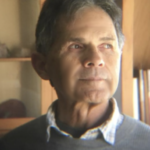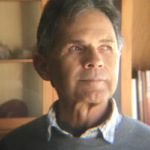
I remember when I used to gather with my family around a small-screen, black-and-white television. It was the mid-1950s when the Civil Rights era was starting to take shape.
The Jim Crow laws, constructed to blatantly deny equal rights to African Americans, were in full force in many states. These laws repressed Blacks in ways that are unimaginable to us today.
What we viewed on TV was almost completely from a white perspective. There were very few Blacks in the programming of that time. The few that were shown to us appeared in stereotypical roles: nannies, maids, porters, janitors, and criminals.
I also remember watching The Jack Benny Show with my father, a blue-collar worker who enjoyed situational comedy. Jack Benny was a character portrayed as an affluent, though endearingly “cheapskate,” white Jewish man. He was a renowned comedian before, during, and after World War II.
Read more →


